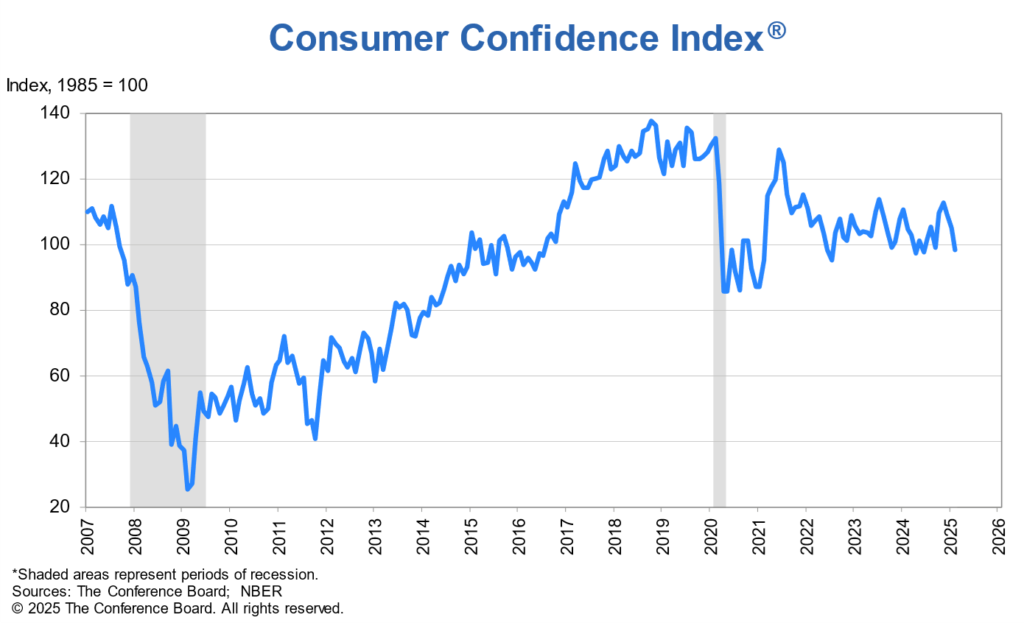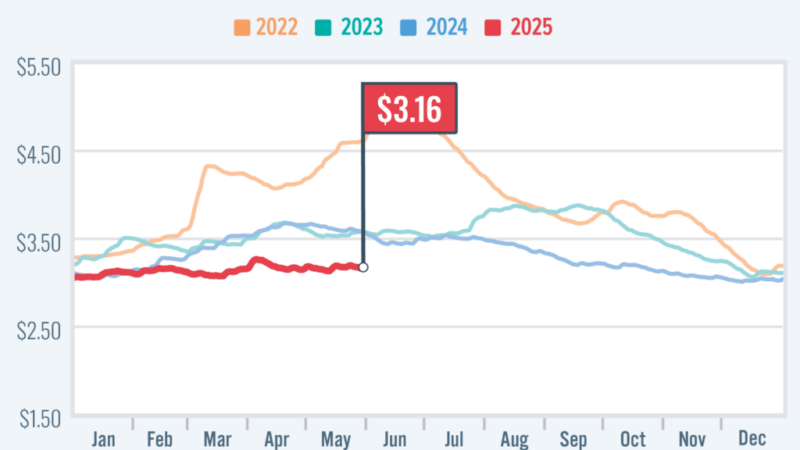U.S. Consumer Confidence Dropped Sharply in February – RVBusiness – Breaking RV Industry News

The Consumer Confidence Index declined by 7.0 points in February to 98.3 (1985=100). The Present Situation Index — based on consumers’ assessment of current business and labor market conditions — fell 3.4 points to 136.5, according to a release from The Conference Board, a member-driven, non-partisan, not-for-profit think tank.
The Expectations Index—based on consumers’ short-term outlook for income, business, and labor market conditions — dropped 9.3 points to 72.9. For the first time since June 2024, the Expectations Index was below the threshold of 80 that usually signals a recession ahead. The cutoff date for preliminary results was Feb. 19, 2025.
“In February, consumer confidence registered the largest monthly decline since August 2021,” said Stephanie Guichard, Senior Economist, Global Indicators at The Conference Board. “This is the third consecutive month on month decline, bringing the Index to the bottom of the range that has prevailed since 2022. Of the five components of the Index, only consumers’ assessment of present business conditions improved, albeit slightly. Views of current labor market conditions weakened. Consumers became pessimistic about future business conditions and less optimistic about future income. Pessimism about future employment prospects worsened and reached a ten-month high.”
February’s fall in confidence was shared across all age groups but was deepest for consumers between 35 and 55 years old. The decline was also broad-based among income groups, with the only exceptions among households earning less than $15,000 a year and between $100,000–125,000.
Guichard added: “Average 12-month inflation expectations surged from 5.2% to 6% in February. This increase likely reflected a mix of factors, including sticky inflation but also the recent jump in prices of key household staples like eggs and the expected impact of tariffs. References to inflation and prices in general continue to rank high in write-in responses, but the focus shifted towards other topics. There was a sharp increase in the mentions of trade and tariffs, back to a level unseen since 2019. Most notably, comments on the current Administration and its policies dominated the responses.”
Consumers’ views of their Family’s Current and Future Financial Situation were less positive, retreating from the series highs reached in January. The proportion of consumers anticipating a recession over the next 12 months increased to a nine-month high. (These measures are not included in calculating the Consumer Confidence Index.) Consumers’ bullishness about the stock market also retreated: only 46.8% of consumers expected stock prices to increase over the year ahead—the smallest share since April 2024, and down from 54.2% in January. By contrast, 32.8% expected stock prices to decline, up from 24.8% in January. More than half (51.7%) of consumers expected higher interest rates over the next 12 months. The share of consumers expecting lower interest rates dropped further to 24.0% from 27.1% last month.
On a six-month moving average basis, purchasing plans for homes continued to recover, likely supported by the very recent decline in mortgage rates. On the other hand, buying plans for cars and big-ticket items were down, with notable declines for TVs and electronics. Consumers’ overall intentions to purchase additional services in the months ahead were changed little, but their priorities shifted slightly: personal and health care, as well as movies and live entertainment, moved up the priority list, at the expense of streaming and travel. Vacation plans continued to trend downward.
Click here to read the full Consumer Confidence Index by The Conference Board.






